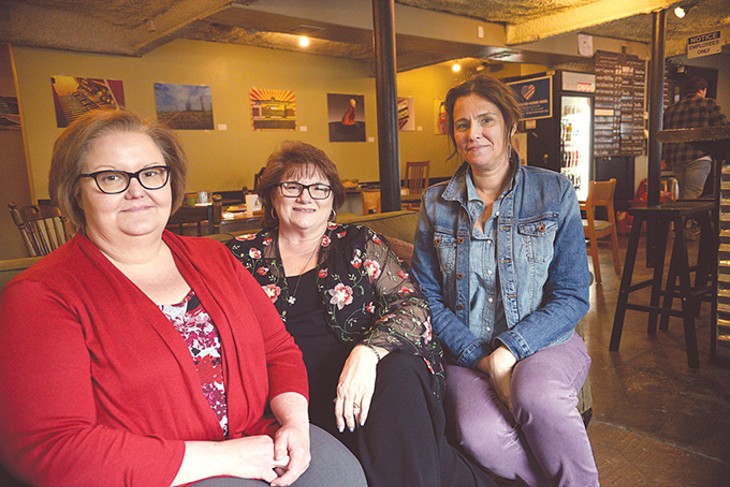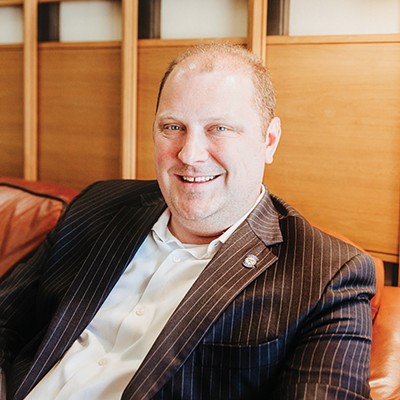
In mid-March, Rep. Leslie Osborn, R-Mustang, introduced legislation designed to create a respite waiver program for families and caregivers of people with developmental disabilities.
Osborn, one of 15 members of the newly created Waiting List Caucus, introduced House Bill 2758 as a solution to reduce the long waiting list that has historically plagued Oklahoma Department of Human Services’ (DHS) Developmental Disabilities Services division and kept Oklahoma families providing care for the developmentally disabled on their own, with sometimes little or no help, for years on end.
“When I came in in 2008, it was a four-year wait,” Osborn said from the House floor. “Now, we are up to 14 years.”
The House, on a 91-2 vote, passed the respite waiver bill. The legislation now awaits a Senate committee. Osborn authored the legislation’s companion bill, House Bill 2754, which allows local governments the option to require annual registrations for utility vehicles. All revenue collected from registrations would go toward the Developmental Disability Waiver Program Revolving Fund at the state treasury.
The floor vote was a monumental win for advocates and the more than 7,600 Oklahomans with developmental disabilities without state assistance and waiting. The legislation earned the support of advocates months earlier when Osborn approached parent advocate Wanda Felty about what she could do to bring relief to waiting list families.
While the legislation was being drafted, fellow parent advocates Erin Taylor and RoseAnn Duplan joined Felty in creating the Waiting List Caucus, a group of bipartisan lawmakers dedicated to supporting people with developmental and intellectual disabilities in Oklahoma. Before session started, at a half-day training, more than a dozen lawmakers arrived ready to learn about the waiting list and what could be done to improve services for Oklahomans with developmental disabilities.
“I think one of the greatest parts of this Waiting List Caucus story is that it shows that parents and state personnel can have outstanding, proactive relationships when people are open and transparent about what the goals are,” Taylor said. “My experience is that sometimes DHS, and certainly our legislators, make decisions without the person with the disability and the supporting family at the table, putting in their obligatory experience. We cannot have that continued.”
Worsening crisis
The Waiting List Caucus couldn’t come at a better time, said Felty.As of fall 2017, 7,659 people with developmental disabilities were waiting for state services. The applications of people who got in line in 2006 are being processed, according to DHS records.
In Oklahoma, DHS’ Developmental Disabilities Services Division offers Medicaid home- and community-based waivers to help people with disabilities and their families pay for in-home caregivers, employment services and other supports. The funding comes from the Oklahoma Legislature and federal Medicaid program funding. Individuals seeking such services are placed on a waiting list.
Twelve years ago, Felty took over the waiting list meetings, helping families brace for the long wait ahead and alerting them to other available services that could help in the meantime. Over the past two years, the tone of the meetings has changed, Felty said. Stories of families frustrated with the waiting list have been replaced with stories of families in crisis, like the death of an elderly parent leaving no one to care for their adult children who require around-the-clock care.
“At every waiting list meeting, we hear a family in crisis,” Felty said. “I am afraid of the response the state will have when we have 20 families in crisis at one time. I am fearful of that because they will be charged to make a quick decision. When you make quick decisions in a crisis, they are not good decisions in the long-term. That has caused me the greatest fear.”
For those who receive DHS services — about 8,180 Oklahomans with developmental disabilities ranging from ages 2 to 89 — the care is provided in community settings and can include long-term case management, prescription drugs, home health aids, personal or medical care, therapy and employment training.
Current state funding for the program doesn’t match the need.
“There has been a waiting list from the time our home- and community-based programs were created, and the reason is these programs are dependent upon state dollars to be appropriated to match Medicaid dollars,” said Sheree Powell, DHS’ director of communications and community relations. “For us to serve more individuals, we would have to have more money appropriated each year to that budget for that purpose.”
Path to a caucus
Calls to increase funding to DHS’ Developmental Disabilities Services Division have gone nowhere during the recent financial troubles at the Oklahoma Capitol. That’s not because Oklahomans with developmental disabilities and their families haven’t traveled to the Capitol for meetings with lawmakers.Back in 2012, Taylor and her son Henry paid their newly elected representative a visit. The family was two years into their wait for services. Taylor told Rep. Jon Echols, R-Oklahoma City, that her son’s name was added to the list in 2010, but the family didn’t expect to hear from the agency until 2018, at the earliest.
While schools provide support, including personal aids to children like her son, that still left Taylor’s family and many others struggling to find and pay for evening and weekend caregivers. Echols lent his support. He went on to become a frequent speaker at Developmental Disabilities Day at the Capitol. He joined a relatively small group of legislators who fiercely advocate for people with developmental disabilities.
By 2017, the waiting list had jumped to more than 7,600 names. Taylor found herself in a disability policy seminar in Washington, D.C., where she made time to visit U.S. Rep. Steve Russell’s office. While seated in the Choctaw Republican’s office, she overheard the congressman’s staff say Russell would attend a meeting of the Congressional Veterans Caucus. Taylor began to wonder, If there was a veterans caucus, could there be a waiting list caucus?
Back in Oklahoma City, Taylor proposed the question to Echols.
“Rep. Echols very graciously said, ‘Yes, we can do that, but we need educated advisors,’” Taylor said.
She knew just the group of parent advocates.
Work continues
Taylor, Felty and Duplan see the respite waiver as the first push of many to come to improve access to developmental disabilities services. They view the legislation as a “pressure valve” for the waiting list families, aiding them with planned short-term and time-limited breaks. However, the legislation was not intended to replace the home- and community-based services waivers, which will continue to be offered.Powell, with DHS, said the respite waiver matches the needs of families on the waiting list.
As the Waiting List Caucus continues to meet with the three parent advocates, waiting list families continue to play an important role, Taylor said.
“We recognized … that legislators need to listen to us, but as family advocates, we have an obligation to have a constant relationship with our legislators,” Taylor said. “Not just one phone call a year or posting frustrations on Facebook. … This is about relationships. We need every family talking to their legislator throughout the year.”











